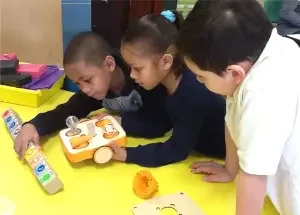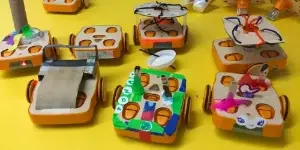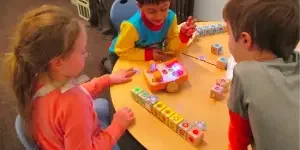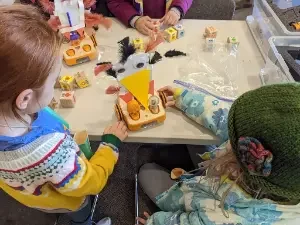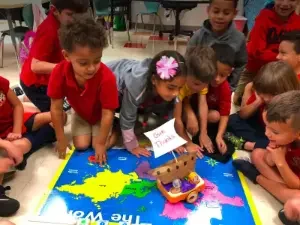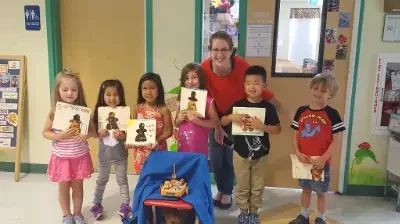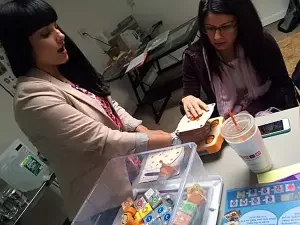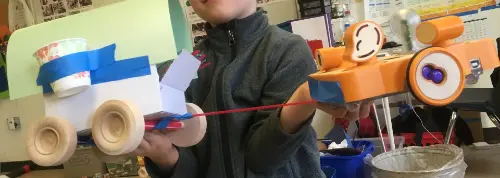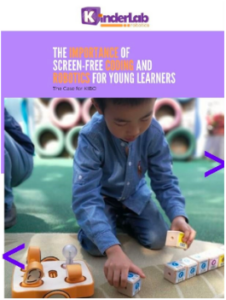A case for continuous Kinder-innovation
Studies have shown that consistent investment in the education of younger children is beneficial to overall human capital. One study, by Nobel Prize winner James Heckman, referenced on the National Conferences of State Legislatures’ website, documents these key findings:
- “Cognitive and non-cognitive abilities are important for a productive workforce, and gaps that emerge early are difficult to change.”
- “Because skills are accumulated, starting early and over time, investing in young children is an investment in future productivity and public safety.”
Quite simply, Heckman — who studies scientific basis for economic policy evaluation — finds that productivity can be fostered by investing in young children. We agree.
The importance of children in the 4 to 7-year-old set learning the fundamentals of coding really has little to do with computers, at least not right away. No one expects your preschooler to create video game apps or master software development — nor should they! This age group is an age of play. Through play, they learn. And through play, we can provide tools that will help kids better grasp coding concepts that will be presented to them later in life, sidestepping the “gaps that emerge early [and] are difficult to change,” that Heckman mentions.
We’re finding out that concepts such as sequencing — introduced at an earlier stage in a child’s development — build a bridge to coding later on. Younger children benefitting from exposure to basic sequencing concepts is a view shared by KinderLab Robotics co-founder and Tufts University professor Marina Umaschi Bers, and also by Jack McDermott, author of an article mentioning KIBO at EdSurge.
McDermott, explains sequencing as: “the ability for children to comprehend how individual events are ordered within a chain of events … the foundation of computational thinking may go something like this: If we hope to get the spaceship to reach the moon, then it must move three squares before turning right, then move another two squares until it reaches the final destination,” McDermott writes.
There is no doubt that we’re living in a technological world.
“What if we could empower children during their most formative stages with the fundamentals of computer programming?” McDermott asks. We think KIBO can help in this mission — and maybe help a child get that spaceship to the moon.

